3. November 1918 [Third of November 1918] (Edwin Zbonek, 1965)
Nov
3
1918
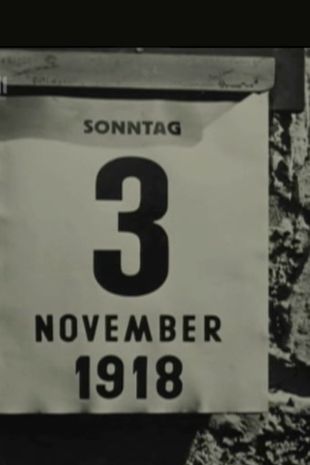
A calendar page for November 3, 1918. It's a Sunday. DP: Rudolf Sandtner.
Takes place on November 2 and 3.
1960s
“I'm a volcano of ideas.”I pugni in tasca [Fists in the Pocket] (Marco Bellocchio, 1965)
Nov
3
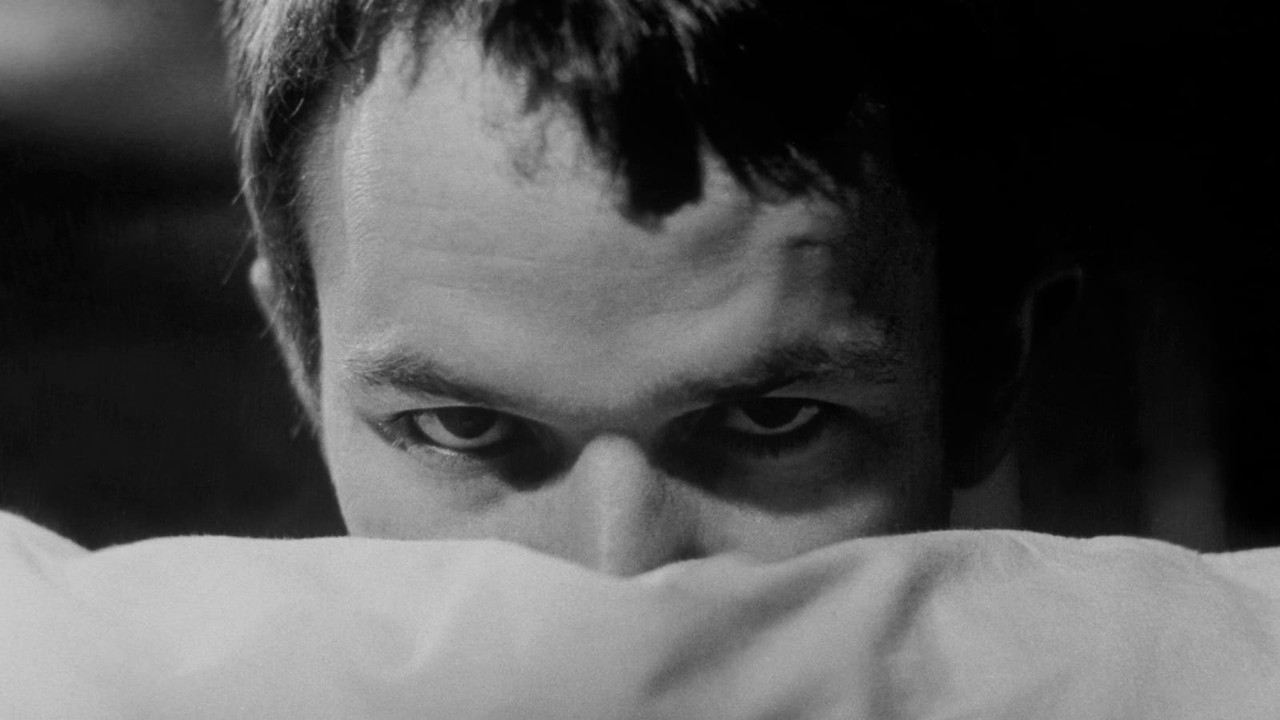
Alessandro (Lou Castel). DP: Alberto Marrama.
– Alessandro
“One… two… three… four… five… seven… six… six… eight… nine… nine…”Peace, little girl [Daisy / Daisy Girl] (Sidney Myers, 1964)
Nov
3
1964

Monique Corzilius aka Monique Cozy as the Daisy Girl. DP: Drummond Drury.
– Daisy Girl
“Junge, du bist ja ganz woanders!” Bübchen (Roland Klick, 1968)
Nov
1
autumn
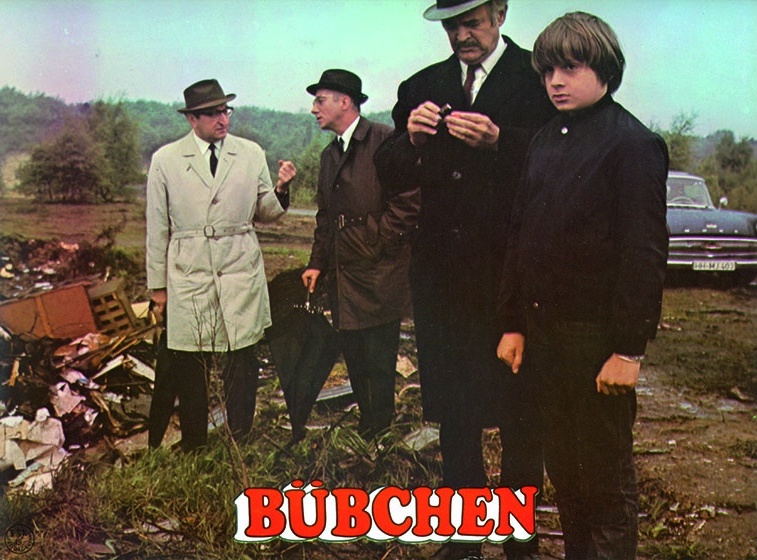
Lobby card. Achim (Alexander Kekulé) at a dreary, autumn-y scrapyard surrounded by several serious looking men in trenchcoats. Bübchen is an endearing term for a little boy (via (spoilers)). DP: Robert van Ackeren.
A movie that feels like autumn*
A family of four share the same house and live their own lives. When the parents attend a company party, the neighbour's teenage daughter reluctantly babysits the children then promptly runs off with her secret boyfriend. Left to his own devices, the bored 10-year old Achim plays a game with his little sister
I Initially nomintad the RAF critique Deutschland im Herbst (1978) for today's challenge, when I realised that Bübchen too is about Germany's youth's antics and the society that planted its seeds. Here again, a repressed community dutifully finds a way to bury the terror into the fabric of mundanity. You'll find it again in Michael Haneke's Das weiße Band (2009), now foretelling the German youth that came to embrace Nazism.
Eternal return, ad nauseam.
* the Bales 2025 Film Challenge for November is, again, not date-based, but follows a sloppy schmaltzy all-American Thanksgiving-y narrative. Trying to make it work my way.
Zahrada [The Garden] (Jan Švankmajer, 1968)
Oct
25
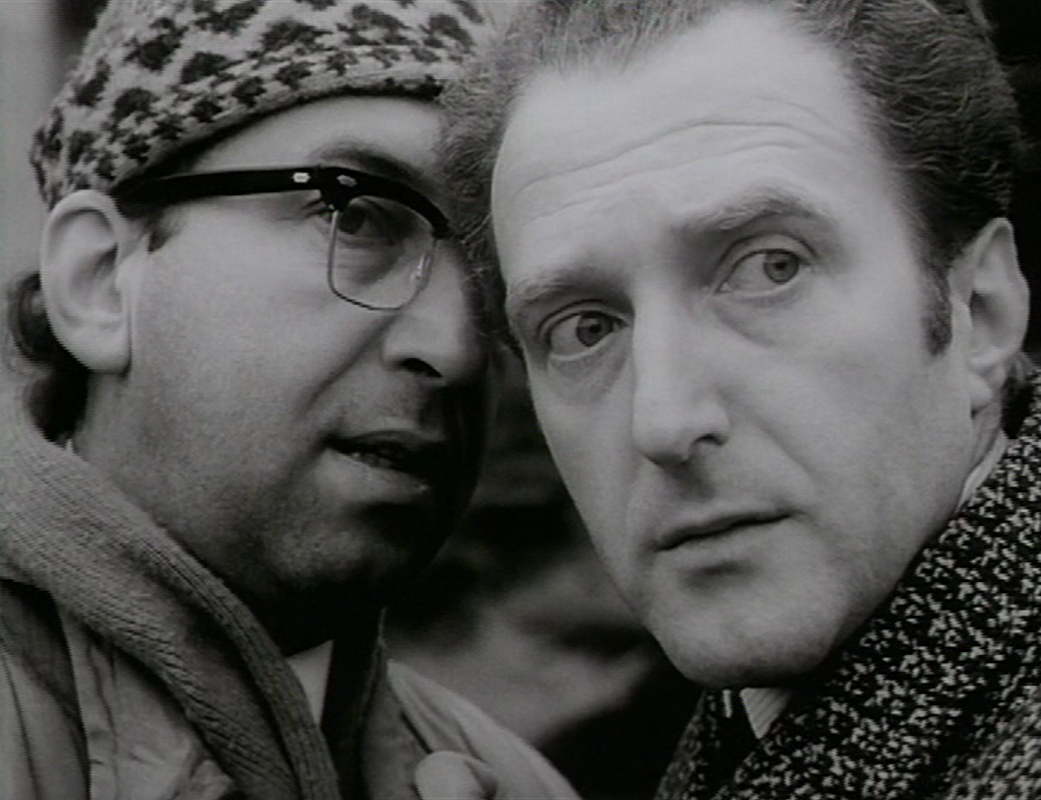
Jiří Hálek and Luděk Kopřiva as Josef and Frank. DP: Svatopluk Malý.
La donna del lago [The Lady of the Lake / The Possessed] (Luigi Bazzoni + Franco Rossellini, 1965)
Oct
25

Tilde (Virna Lisi) caressing a man's hand, resting on her shoulder, with her cheek. DP: Leonida Barboni.
Until November 20.
Banditi a Milano [The Violent Four] (Carlo Lizzani, 1968)
Oct
22

Two of the four bandits, Pietro 'Piero' Cavallero (Gian Maria Volontè) and Sante Notarnicola (Don Backy), surrounded by press and Carabinieri. DPs: Giuseppe Ruzzolini & Otello Spila.
– “Memories for Abigail Lester Crain: A Legacy for Her Education and Enlightenment. From her devoted father, Hugh Desmond Lester Crain, Hill House, October 21, 1873.” – But that's today. – Tomorrow and 90 years later.The Haunting (Robert Wise, 1963)
Oct
21
1873
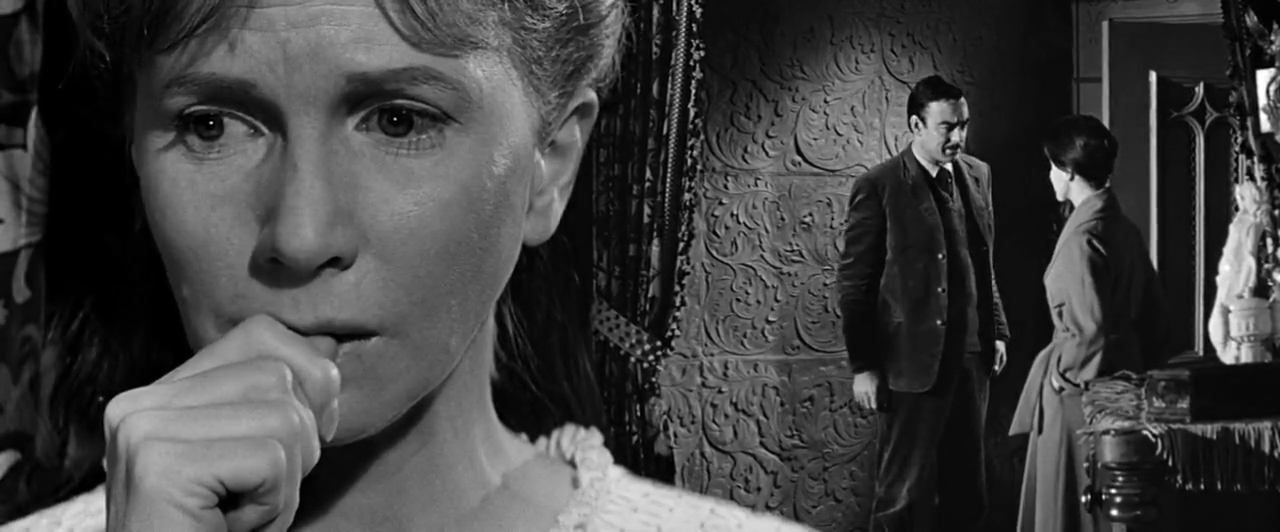
Eleanor (Julie Harris), with Dr. John Markway (Richard Johnson) and Theodora (Claire Bloom) in conversation behind her. DP: Davis Boulton.
La sixième face du pentagone [The Sixth Face of the Pentagon] (Chris Marker + François Reichenbach, 1968)
Oct
21
1967

Armed police seen from the back. In front of him someone holds up a sign that reads WHY WAR. DPs: Tony Daval, Chris Marker & Christian Odasso.
Swissmade [Swiss Made 2069] (Fritz E. Maeder, Fredi M. Murer + Yves Yersin, 1968)
Oct
20
Alien
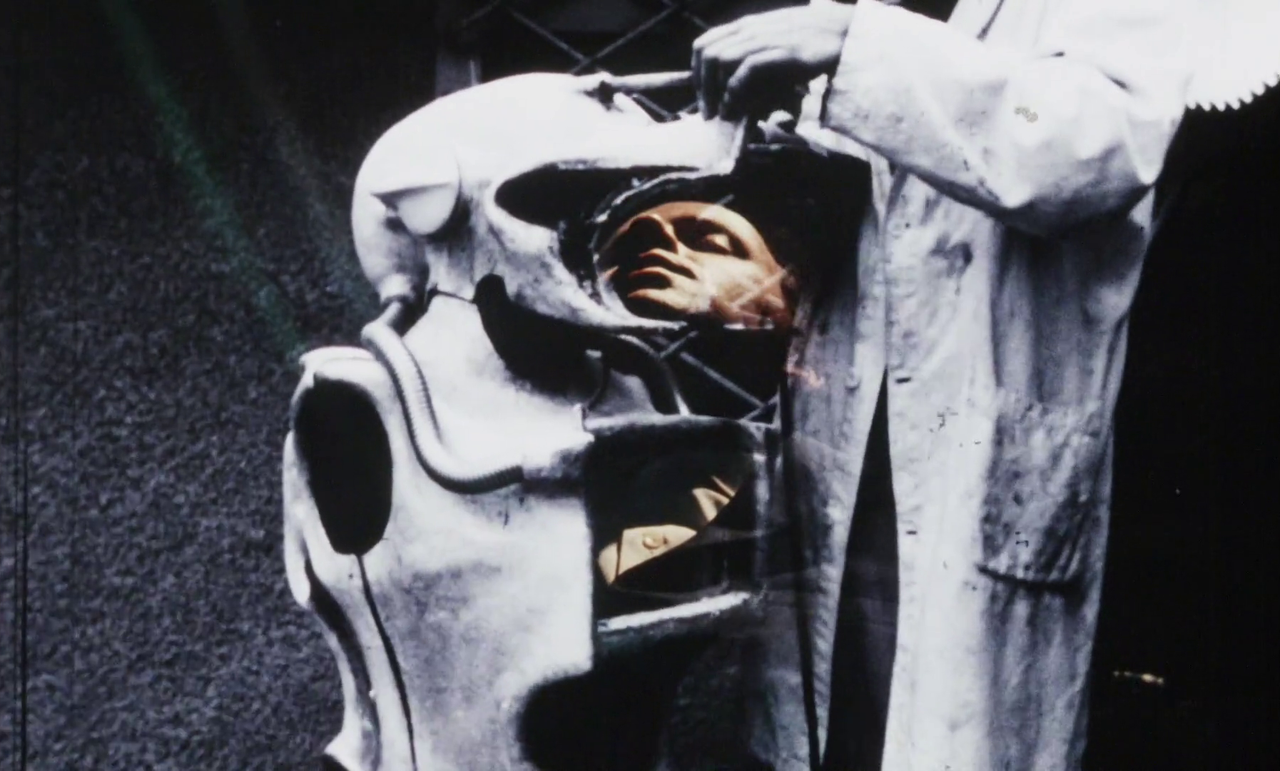
A man hooked up to a device with tubes dreams about a strange, unsettling creature. Just out of a frame someone (H.R. Giger himself) works on the being with a grinder. DPs: Witold Lesiewicz, Fritz E. Maeder & Fredi M. Murer.
[A favourite] Alien [“alien”?] movie*
Three segments envision the future of the Swiss Confederation. In the Fredi M. Murer instalment 2069 – oder wo sich Futorologen und Archäologen gute Nacht sagen, an alien visits surveillance state Switzerland. The visitor in question is designed by H.R. Giger, and glimpses of the XX121 xenomorph are present in its exoskeletal core.
* the Bales 2025 Film Challenge for October is horror-themed as opposed to date-based, and is all about favourites. Expect non-horror and films I believe to be relevant instead.